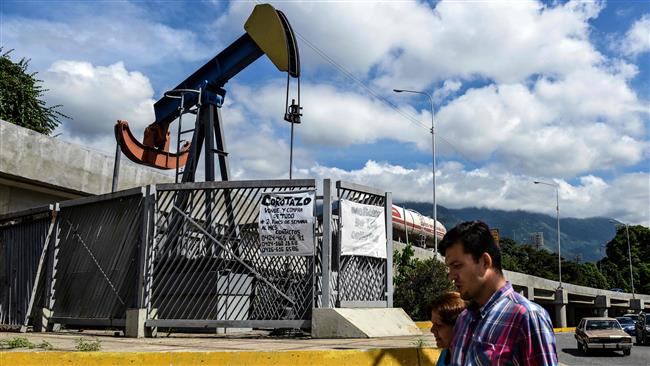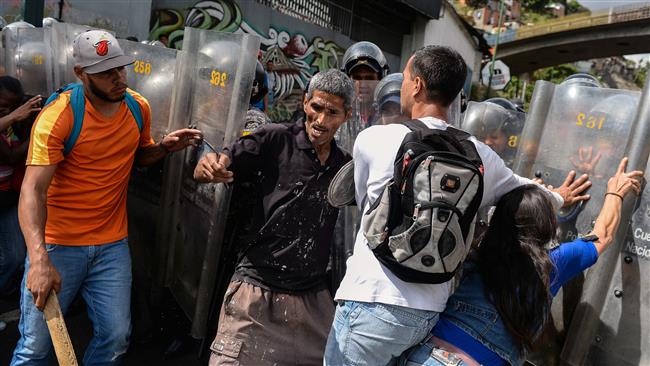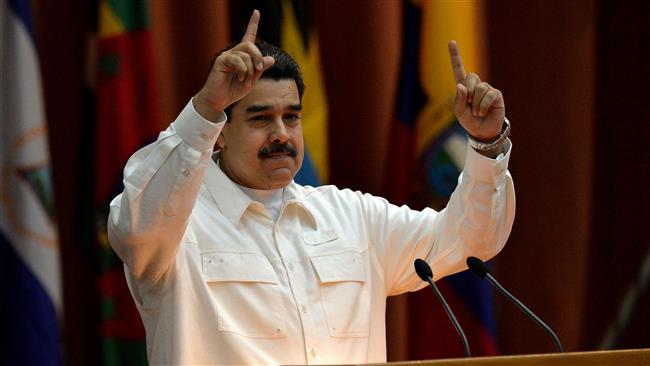Venezuelan pro-government MP assassinated, Maduro blames US
Gunmen in Venezuela have assassinated a pro-government member of the country’s Constituent Assembly in a drive-by shooting, with President Nicholas Maduro blaming the United States.
Officials announced on Thursday that 31-year-old legislator and lawyer Tomas Lucena had been shot multiple times by two men riding a motorcycle while he was in his pickup truck with family members in the western Trujillo State on Wednesday afternoon.
He succumbed to his injuries a short while later at the hospital, according to a statement by the Venezuelan public prosecutor’s office.
Maduro blamed the assassination on Washington and the country’s US-backed political opposition, saying, “Violence here, violence there... directed by the Embassy of the United States.”
The US State Department did not immediately respond to inquiries for comment on the accusation by Maduro, who has repeatedly blamed the US for actively backing the opposition and allegedly sowing discord in the country.
Speaking in a nationally-televised address, Maduro said Lucena, a father of three young children, had been targeted for political reasons, adding that he was “killed by right-wing hit men.”
Lucena, who was a relative unknown in the Venezuelan politics, was elected last year to the 545-member Constituent Assembly, which took over the powers of the opposition-controlled National Assembly after establishment.
The country’s opposition leaders make regular visits to Washington and Western European capitals to obtain international support.
Venezuela government, opposition hold fresh talks
The development came as delegates from Maduro’s administration and the opposition met in the Dominican Republic on Thursday for a third round of talks to address differences.

The two-day meeting came after Maduro’s government threatened to ban some opposition parties from elections amid opposition threats to resume street protests.
Unrest has already left 125 people dead from both the government and the opposition camps in Venezuela. Violence erupted in Venezuela last year amid persistent political bickering and an acute economic downturn.
The lead government delegate at the Thursday talks, Communications Minister Jorge Rodriguez, accused the opposition of paying lip service to the event while planning to “return to the strategy of violence.”
“We do not need to go to the Dominican Republic if they do not want to,” he said on the eve of the talks, adding, “Go to the streets. We will wait for them in the streets.”
Opposition delegate Juan Andres Mejia, of the Popular Will Party, also sounded pessimism, saying, “It seems to be in the air that we will not be able to advance.”
Maduro, however, insisted that the talks could yield a “preliminary deal,” adding that he had instructed his negotiators to make progress.
“Let’s not give the opposition any excuses to run off looking for violence,” he said.
Meanwhile, Venezuela’s Constituent Assembly has ordered the three main opposition parties to re-register with the National Electoral Council (CNE) in order to participate in the presidential election next year. That came after the parties boycotted mayoral polls last month, claiming that they lacked transparency. The government also demands that the opposition recognize the Constituent Assembly.
Niger accuses French nuclear giant Orano of ‘mass crimes’
Iran, Russia sign agreement to boost AI, cyber security cooperation
Lebanon’s Parliament Speaker: Talks under fire ‘unacceptable’
Video shows US killing shipwreck survivors in Caribbean strike, lawmakers say
Nematzadeh, Zeinali strike gold for Iran at U21 World Taekwondo Championships
Hezbollah chief: Lebanon faces ‘dangerous, expansionist’ Israeli aggression
Israeli reservist ends his life after participation in Gaza genocide
Israel is the ‘troublemaker’ in region, Saudi Prince Turki says













 This makes it easy to access the Press TV website
This makes it easy to access the Press TV website